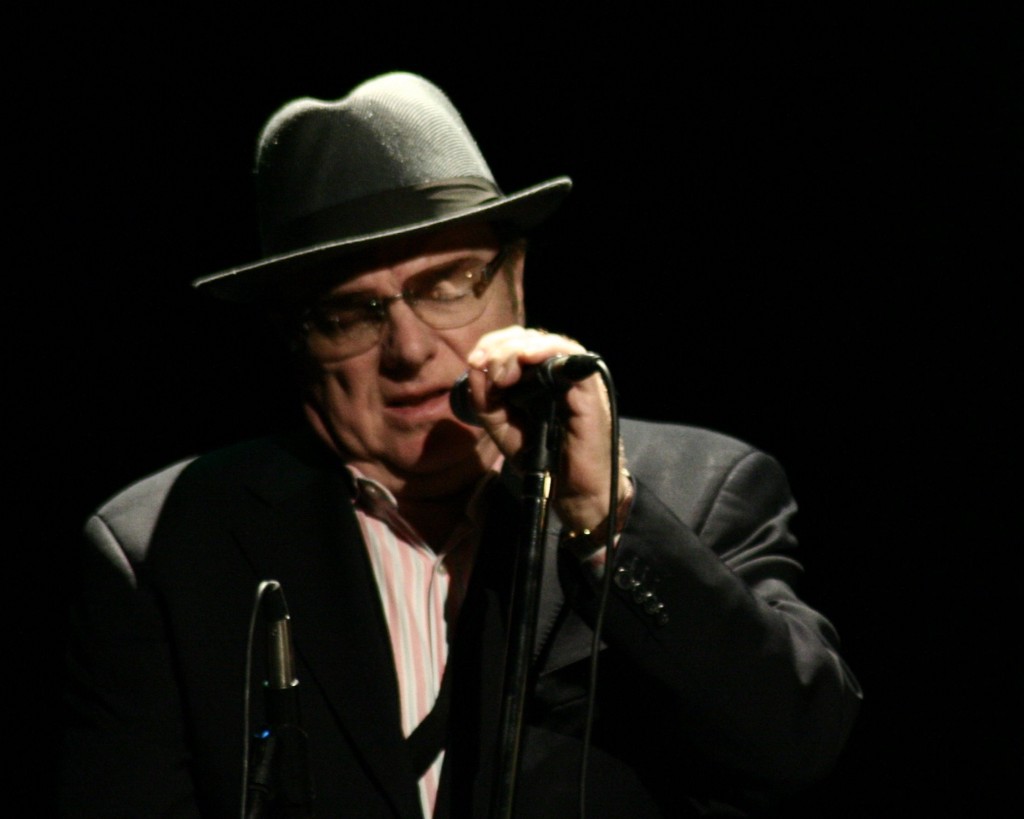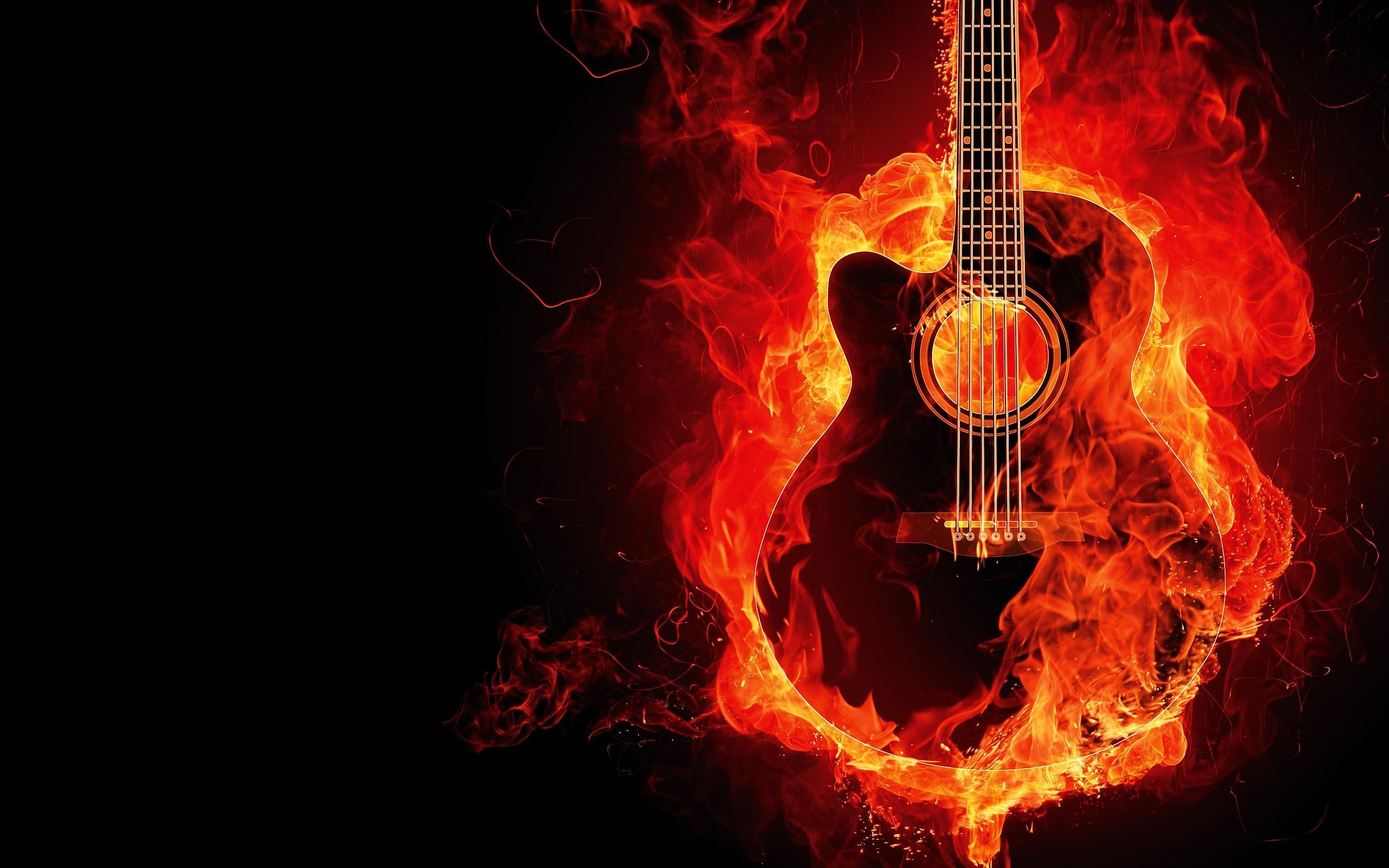Books & Culture
The Still-Untold Story of Van Morrison’s ‘Astral Weeks’
A new book about Morrison and his musical context doesn’t answer all my questions about my favorite record in the world

When Van Morrison’s producer died abruptly of a heart attack at the end of 1967, Morrison’s contact at Bang Records became Carmine “Wassel” DeNoia, a “low level” mobster later convicted of bribing radio DJs to play certain records more heavily than others. When bribery failed, he used other means. “So here’s this disc jockey,” he said in 2001. “I throw open the window, pick him up, flip him, shake him out by the ankles. Ninth floor. All the change fell out of his pockets. Some friends of mine picked it up.”

One night, Wassel went to see Van Morrison at his hotel. Van was short-tempered and drunk, and Wassel was Wassel. Before the night was over, he’d picked up an acoustic guitar and smashed it down over Morrison’s head.
For reasons not entirely unrelated, Morrison soon fled New York for Boston where, according to Ryan H. Walsh’s new book, Astral Weeks: A Secret History of 1968, he “planned, shaped and rehearsed” the songs that became the record Astral Weeks, which is my favorite record in the entire world.
I was in college when I started listening to Astral Weeks. At that time my thoughts were about as mystical and vague as Van’s seemed to be: I liked to think that the record could show me how to live, how to be in the world.
I was living on the second floor of a lovely, dingy house with two other girls. We each had wide eyes and a penchant for feeling things so intensely we didn’t always know how to manage ourselves. We were raw, exposed, each of us with our own little handful of trauma. Later, things between us grew difficult, even sour, but back then, we were all a little in love with each other.
I liked to think that the record could show me how to live, how to be in the world.
It was just a brief period that we lived together. During that time we drank a lot, smoked a lot of weed, listened to a lot of music, loudly, and sang. Up to then I had been shut up into myself as tightly as a matchbox. But Sam sang, and she sang all the time, and she had an achingly clear, shimmering voice, and she sang with such a sense of wonder and joy that soon I was singing, too, not only when I was alone, and even with the windows open.
We sang along with what we listened to. We listened to a lot of Sam Cooke, especially the gospel songs. We listened to the same things over and over again. Joni Mitchell, Gillian Welch, Emmylou Harris with Mark Knopfler, Alison Krauss with Robert Plant, and sometimes I’d go off on a tangent when I’d want to hear Dylan, which the others would tolerate, more or less, and also we listened to Van Morrison.
Eventually we discovered we could climb out through the kitchen window and onto the roof that overhung the front porch. It was a narrow, tar-covered ledge that could fit one person lying down length-wise or the three of us seated side by side with our legs dangling over the edge. We would set up our speakers in the window and blast our music through it while we sat and talked or sang. We even danced out there. Once a man came along on a bicycle and asked if he could take our photograph; we didn’t even tell him off, only shrugged, I think, and turned away. I can’t remember whether he took the photo or not. I can remember playing “Sweet Thing” out that window at top volume at 7:30 in the morning while we drank our coffee on the roof, thinking, in earnest, that we were doing the neighborhood a service.
But I can’t remember if Sam first played me Astral Weeks or if it was a boy I started seeing then. It might have been the boy. When Van sings, in “Cyprus Avenue,”
I think I’ll go walk by the railroad with my cherry, cherry wine
I believe I’ll go walking by the railroad with my cherry, cherry wine
I still think, That’s the part that boy liked.
His voice needs no accompaniment, no backing to prop him up. He is like Joni Mitchell in that way. The strength of his voice, or her voice, carries each song. But where Joni’s voice is sharp and clear as cold clear water, Van’s is as grainy and textured as velvet. He sings with a ferocious urgency, like he has to, like he might die if he doesn’t — or, worse, simply disappear from the world. He’s plaintive, howling.
But he isn’t just plaintive. He can be funny, ridiculous, both — possibly unintentionally. Near the beginning of “Ballerina” he says, in his misty, romantic way,
and if somebody, not just anybody
wanted to get close to you
for instance me
And later in the same song he roars with such passionate conviction you think he’s about to deliver something really profound, but what he says is:
the light is on the left side of your head
Is this a reference to something? I don’t know. But, oh, this song. The quick pinging of that bass line, like quick satin steps across a stage. Or
just like a ballerina stepping lightly
as Van says himself. But I can’t write down the lines. They bear such slight resemblance to the lines he sings. It’s that old cliché: painting about architecture. But it’s also his delivery. The notes spill and tumble and trip from his mouth like they would from a bird’s. Listen to him trilling, at the end of “Madame George,” “the love that loves to love that loves the love to love,” and on, and on.
I can’t write down the lines. They bear such slight resemblance to the lines he sings.
He was born George Ivan Morrison in 1945 in Belfast. Later he developed a taste for the occult, but it doesn’t seem to have come from his parents. While his mother briefly became a Jehovah’s Witness, his father was an atheist. Perhaps more importantly, his father built up a “vast collection” of records, mostly American blues, ballads, gospel, and folk; Woody Guthrie, Hank Williams, Jimmie Rodgers, Eddy Arnold, Gene Autry, Sonny Terry, Brownie McGhee, Sister Rosetta Tharpe, and eventually, Muddy Waters, Howlin’ Wolf, Little Walter, Big Joe Williams, John Lee Hooker.
Both he and his father revered Leadbelly (who appears on the song “Astral Weeks” under his given name, Huddie Ledbetter). Later Van kept a framed picture of Leadbelly on his wall. Walsh reports that soon after Astral Weeks was released, “feeling burdened by the image, he was about to throw it out.” “At that moment,” Van told an interviewer, “I was fiddling around with the radio — I wanted to hear some music — and I tuned in this station and ‘Rock Island Line’ by Leadbelly came on. So I just turned around, man, and very quietly put the picture back on the wall.”
My Butch Lesbian Mom, Bruce Springsteen
He was 13 when he played with his first band, the Sputniks. After that, he played with Midnight Special, the Thunderbolts, the Monarchs Showband, and Them. He found a bit of fame with Them. They went to London to record a few hits (“Gloria,” “Here Comes the Night”), went to San Francisco to play the Fillmore, Los Angeles for the Whisky A-Go-Go. In 1966 he left Them for New York, the producer Bert Berns (he of the heart attack), and “Brown-Eyed Girl.” After Berns’s death, he was caught up in a tangle of contracts with Berns’s widow and Wassel and eventually fled to Boston where, according to Greil Marcus, “late-night DJs soon got used to a character with an incomprehensible Irish accent drunkenly pestering them for John Lee Hooker music.”
I’d thought Ryan H. Walsh’s Astral Weeks, the book, would be about the making of Astral Weeks, the record, but it is more about the context in which the record was made. Walsh spends an unaccountably large portion of the book describing the Fort Hill Community, a small cult that grew up around Mel Lyman, former harmonica player for the Jim Kweskin Jug Band. Lyman claimed to be God (opinions on whether or how much he meant it seem to vary), ordered his followers around, and wrote charming little poems, like the one that starts:
I am going to fuck the world
I am going to fill it with hot sperm
There are also chapters about Timothy Leary, the Boston strangler, the movie The Boston Strangler, the so-called “Bosstown sound,” and the Velvet Underground.
“This is the secret history of Boston in 1968,” Walsh tells us, a history of “people desperately hunting for something intangible and incandescent, many of whom referred to that something as God. Some found it, embodied it, or impersonated it; others were crushed by it.”

What does all this have to do with Van Morrison? I suppose Walsh wants to say that while Van was in Boston, writing and rehearsing the songs that became Astral Weeks, so were a lot of other people, like Mel Lyman, Timothy Leary, Lou Reed, and they were all at work on their own weird projects, and whether or not any of them actually interacted with Van that summer, in person, all these goings-on must have affected the very air of Boston, which Van was inhaling, and which must have therefore affected the record, and so on, etc. It’s a tenuous line of reasoning on which to base an entire book.
Astral Weeks wasn’t made in Boston. At the end of the summer, Van Morrison went back to New York, signed with Warner Brothers, and recorded the album at Century Sound Studios, 135 West 52nd Street.
That summer, Van played with a string of Boston and Cambridge musicians. These included John Sheldon, a 17-year-old guitarist living with his parents (Van asked to move in; Mrs. Sheldon said no), Tom Kielbania on bass, Joey Bebo on drums, and John Payne on flute.
Van had just married a girl named Janet Rigsbee, a model and aspiring actress he’d met with Them in San Francisco. Five years later, she left. Walsh tracks her down to Sheldon, California, where she tells him, “Being a muse is a thankless job, and the pay is lousy.”
But it sounds like she was quite a bit more than a muse. She helped him to write, or at least to revise. “Van liked to work in a sort of stream-of-consciousness way back then,” she tells Walsh, “letting the tape recorder continue to run while he just sort of played guitar and improvised, trying various things for twenty minutes or so at a time. Then we would go back, listen, and decide what was good, what to keep, tidy up rhyme scheme, and then try it out again.” Did she say “we”? Was she playing Anna Grigoryevna to his Dostoevsky? Mileva Marić to his Einstein? Why doesn’t Walsh ask any more questions?
Was she playing Anna Grigoryevna to his Dostoevsky? Mileva Marić to his Einstein? Why doesn’t Walsh ask any more questions?
My room was at the back of the house. It was a sunroom, really, with no insulation and wood floors painted yellow. If you walked through it, you could get to a screened-in back porch that we stopped using when we discovered the roof. I collected golden cast-off cicada skins and the pennies I’d flattened on the railroad tracks with Sam and the boy.
When I hear Astral Weeks I still think of that house, Van singing
and I will raise my hand up into the nighttime sky
and count the stars that shine in your eye
and just to dig it all and not to wonder,
that’s just right
and I’ll be satisfied not to read in between the lines
and how, after a night when none of us could sleep, Sam would say, in the morning, that our nervous energies must have kept each other awake, even though we’d each been in our own room.
At that time — for just a brief time — I thought, like Marianne Dashwood in Sense and Sensibility, that maybe everything could be said out loud — that everything should be said out loud. That you could feel things with a purity, an intensity, that most of the world seemed to shun. That you could raise your hand up into the nighttime sky, and so on.
At that time I thought that maybe everything could be said out loud — that everything should be said out loud.
For years afterward, I couldn’t listen to Astral Weeks at all. It has been nearly a decade and I am only rediscovering it now.
Walsh is preoccupied by Van’s decision not to use electric instruments on Astral Weeks; he keeps coming back to it. There are a few competing explanations but the story Walsh likes best comes from John Sheldon, who played guitar for Van that summer. Sheldon insists that Van appeared one day and announced he’d “had a dream in which there were no more electric instruments.” That was that; they all switched to acoustic.
Midway through Astral Weeks, the book, Walsh describes Lisa Bieberman, an early associate of Timothy Leary’s and an advocate for LSD. Bieberman later grew disenchanted with Leary, the beliefs they’d shared, and “a time when we thought the world could be enlightened just by flooding it with acid.”
Minus the acid, this was how I thought during that year when I sat on a roof, loving Astral Weeks — that you could receive knowledge or understanding in a sudden rush, that dreams could be prophecies, that you could bypass sadness by immersing yourself in some extravagant bliss.
This was how I thought during that year when I sat on a roof, loving Astral Weeks — that you could bypass sadness by immersing yourself in some extravagant bliss.
Or as Van sings in “Sweet Thing,”
I will never grow so old again
and I will walk and talk in gardens
all wet with rain
It comes as something of a disappointment to learn that none of the musicians you’ve gotten to know over the course of the book actually helped record Astral Weeks — not John Sheldon, or Joey Bebo, or Tom Kielbania, though Kielbania was at least present during the sessions. Walsh doesn’t introduce the Astral Weeks players until the very last chapter. Richard Davis played upright bass, Jay Berliner guitar, Connie Kay drums, and Warren Smith, Jr., of all things, vibraphone. The one exception was John Payne, who came to the sessions with Kielbania, and managed to beg his way on to the title track. (“Please,” he said. “Please let me play on this song.”)
The others were jazz musicians. The producer, Lewis Merenstein, had brought them in. Some of them played with the Modern Jazz Quartet, some with Charles Mingus. Earlier that same day, Berliner had “recorded jingles for both Noxzema and Pringles potato chips.” None of them had met Van Morrison before; none of them had heard of him.
Watching Dolores O’Riordan Dance on Yeats’ Grave
Berliner later said, “This little guy walks in” — pudgy, pasty, ginger-headed as he was — “past everybody, disappears into the vocal booth, and almost never comes out.” He added, “Even on the playbacks, he stayed in there.”
Richard Davis said, “I don’t know what he was doing in there!” He said, “He’s a strange fella!” Davis also said, “We were not concerned with Van at all, he never spoke to us.”
Of course it says much more about me and my own inclination for what Walsh calls a “default mode of noninteraction,” but I have trouble with this slight, small petulance around Van’s silence in the studio. I know that he was rude. I know that he walked into the room and, out of shyness or nerves or irritability or something else, walked past everybody in that room and shut himself into his little booth. But how, once they heard the howling that erupted from him, could they hold it against him? Listen to him on “Ballerina,” how he sings, almost calmly,
well, it’s getting late
and pauses, and the strings brush past a few beats, and he murmurs yes it is, yes it is, and bursts:
and this time I forget to slip into your slumber
like a lion, tipping his head back, roaring. Then there’s the line about the light by your head, and then:
and I’m standing in your doorway
and I’m mumbling and I can’t remember the last thing that
ran through my head
What I mean is: how much more emoting does he have to do until we’re satisfied? So he doesn’t want to do small talk; so, ok.
Walsh says that it’s “a point of contention” whether Van gave the musicians lead sheets or chord charts to work from, “but Davis believes Morrison just strummed the song and sang it from the booth once or twice, with the musicians improvising their parts on top of his composition.”
Greil Marcus is wonderful in his descriptions of Van’s interactions with the musicians, their responses to each other. In his book When That Rough God Goes Riding, he describes how Morrison was
saying nothing to the musicians in terms of banter or instruction, and saying everything in the cues of his chords, hesitations, lunges, silences, and in those moments when he loosed himself from words and floated on his own air. But that’s too simple. When you listen, you hear the musicians talking to each other; more than that, you hear them hearing each other.
Merenstein later said that the finished record had been so utterly contingent on a number of chance happenings that if any one of them had gone differently, it wouldn’t have been made. It “had to happen because it had to happen,” he said, and Marcus goes further: this awareness of contingency, he writes, “becomes an awareness that the fate of a song, whether or not it will achieve the finality you in fact know it will, rests on the way Richard Davis steps out of a rest and whether or not Morrison will know what Davis has just done and what he himself can now do to live up to it.”
They’re magnificent together on “Madame George,” Van’s voice and Davis’s bass twining around one another, Davis tapping out the spine of the song so Van can sweep over it. Every moment of this song, Marcus writes, is another little contingency, every moment in which Davis and Van beckon and respond to one another.
They’re magnificent together on “Madame George,” Van’s voice and Davis’s bass twining around one another, Davis tapping out the spine of the song so Van can sweep over it.
While Marcus finds these contingencies painful, even frightening — “it’s scary,” he writes, “because the inevitability of the music is also its unlikeliness” — I’m struck by the fact, not that it might never have happened but that it happened at all, one moment at a time, one after another, in this room full of musicians Van wouldn’t speak to, that they could communicate like this, Van and the musicians in the room, Van and all the musicians, but most particularly Van and Richard Davis, because as Marcus writes, “at its highest pitch, the album has become a collaboration between Morrison and Davis,” and, even more than that: “In the blues term for the shadow self that knows what the self refuses to know, here Davis is Morrison’s second mind; there Morrison is Davis’s.”
Van might have tooled around that summer with John Sheldon, Joey Bebo, and Tom Kielbania, but on the album, you’re hearing Richard Davis, Jay Berliner, Connie Kay, and Warren Smith, Jr. and, setting aside Walsh’s arguments about the influence of Boston on the record, they’re the ones I want to hear about.
The greater disappointment of Walsh’s book is learning that Van later disavowed Astral Weeks. “They ruined it,” he said. “They added the strings. I didn’t want the strings. And they sent it to me, it was all changed. That’s not Astral Weeks.”
Once they’d recorded the tracks, Merenstein brought in the arranger Larry Fallon, who added harpsichord to “Cyprus Avenue,” horns to “The Way Young Lovers Do,” — and distributed strings across the entire album. I’ve always found the strings lovely.
Van later disavowed Astral Weeks. “They ruined it,” he said. “They added the strings. I didn’t want the strings.”
“Van seemed quite happy with the album at the time, he truly did,” Merenstein insists now. “In fact, everyone did, at the moment it was completed.”
Then again, why worry over Van’s thoughts? How often does an artist make a good judge of their own work? As Walsh points out, Van’s thoughts on Astrals Weeks “change from interview to interview. He’s said it was originally planned as an opera, and also that it’s just a random assortment of songs. That the arrangements are ‘too samey’ and — incredibly — that it’s not a personal record.”
I have heard so many artists speak so obliviously about their own work. Take Dylan, who so frequently either dislikes his own songs or simply neglects to record them (“I’ll Keep It with Mine”), or to release them (“Series of Dreams”), or even to remember them at all (“Love is Just a Four Letter Word,” which he wrote, forgot, and then one day, riding in a car with Joan Baez, listened as her version of it came on the radio and said, in all innocence, something like Hey, that’s not a bad song).
In 2008, Van Morrison announced his intention to perform Astral Weeks live, in its entirety, at the Hollywood Bowl. The show would be recorded and the recording would be released. He brought back some of the original players, too, including Richard Davis and Jay Berliner.
But when the musicians arrived for rehearsal, they found stacks of sheet music waiting for them, on which every note they’d played — they’d improvised — in 1968 had been notated. Van expected them to perform the songs exactly as written. “Do you know how crazy that is?” Merenstein asks Walsh. “For that kind of playing?” Richard Davis made it through two rehearsals before bowing out of the show.
When the musicians arrived for rehearsal, they found stacks of sheet music waiting for them, on which every note they’d played — they’d improvised — in 1968 had been notated.
There’s a part of me that sympathizes with Van here: this need, not merely to replicate, but to return to such a moment, to return fully, to return to each note. Of course you can’t replicate it; of course you can’t return to it.
Part of me wants to believe him when he says the strings ruined Astral Weeks, but his saying it doesn’t make it so. Of course it is difficult to make art, difficult to make in the world what you have already made in your mind. Difficult to make art and difficult to rely on other people to help you make art. It is difficult to be very young and to feel intense sadness and intense joy, often simultaneously, and to figure out a way to live in the world. I love Van Morrison at this moment when he is young and rude and raw, before he sinks into fame and disappointment like an insect into amber. It is so apparent it hardly needs saying. Of course it is difficult to behave well, difficult to live well; of course it is difficult to live at all.










